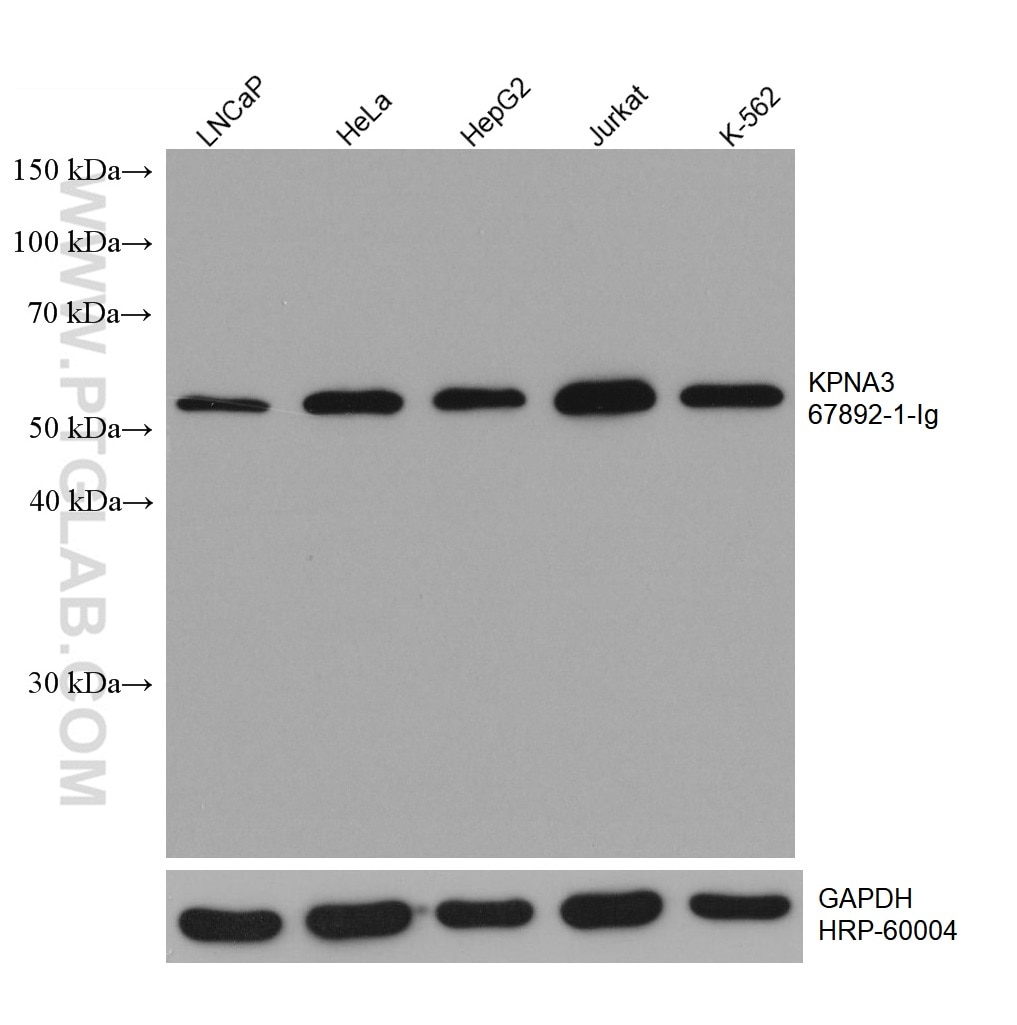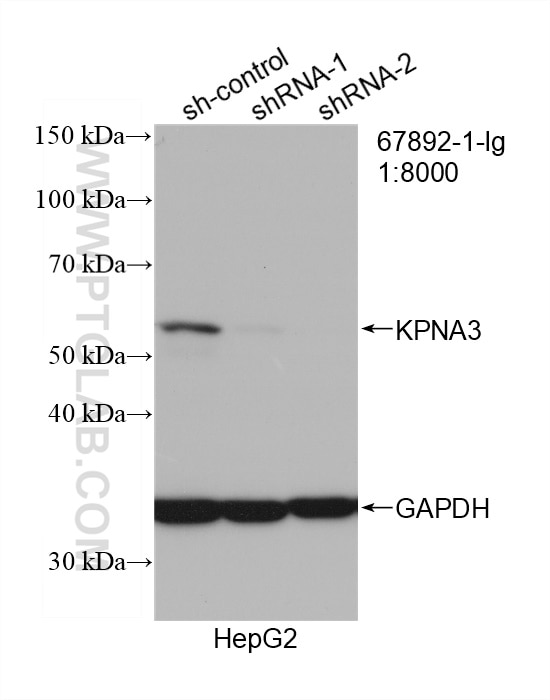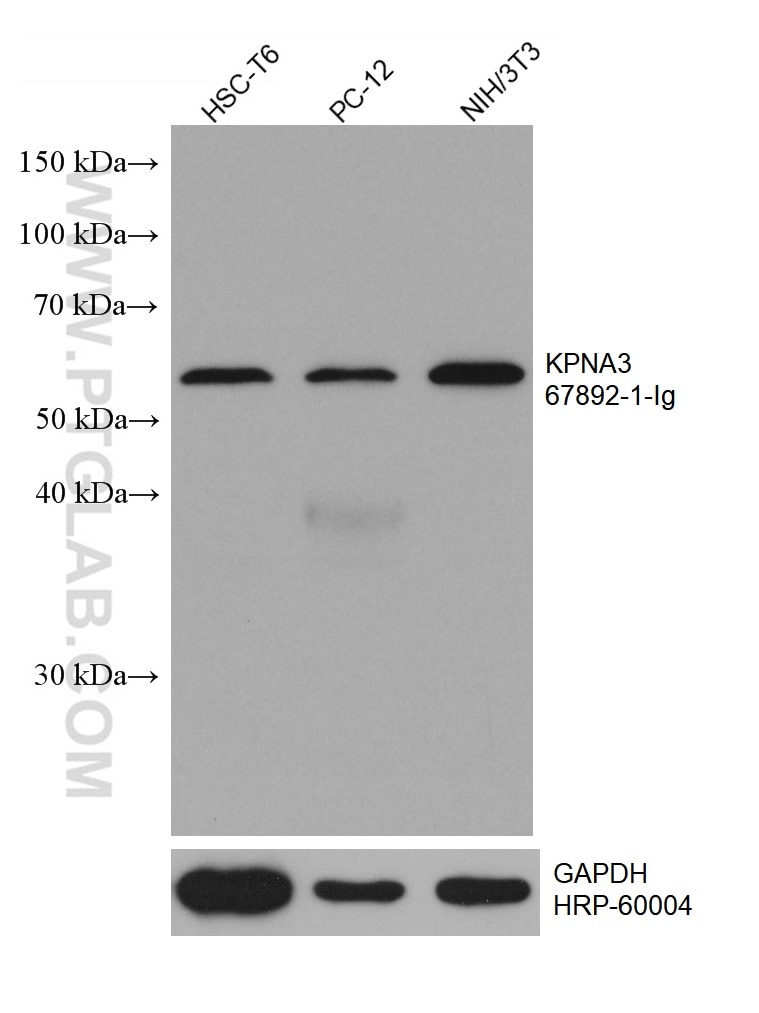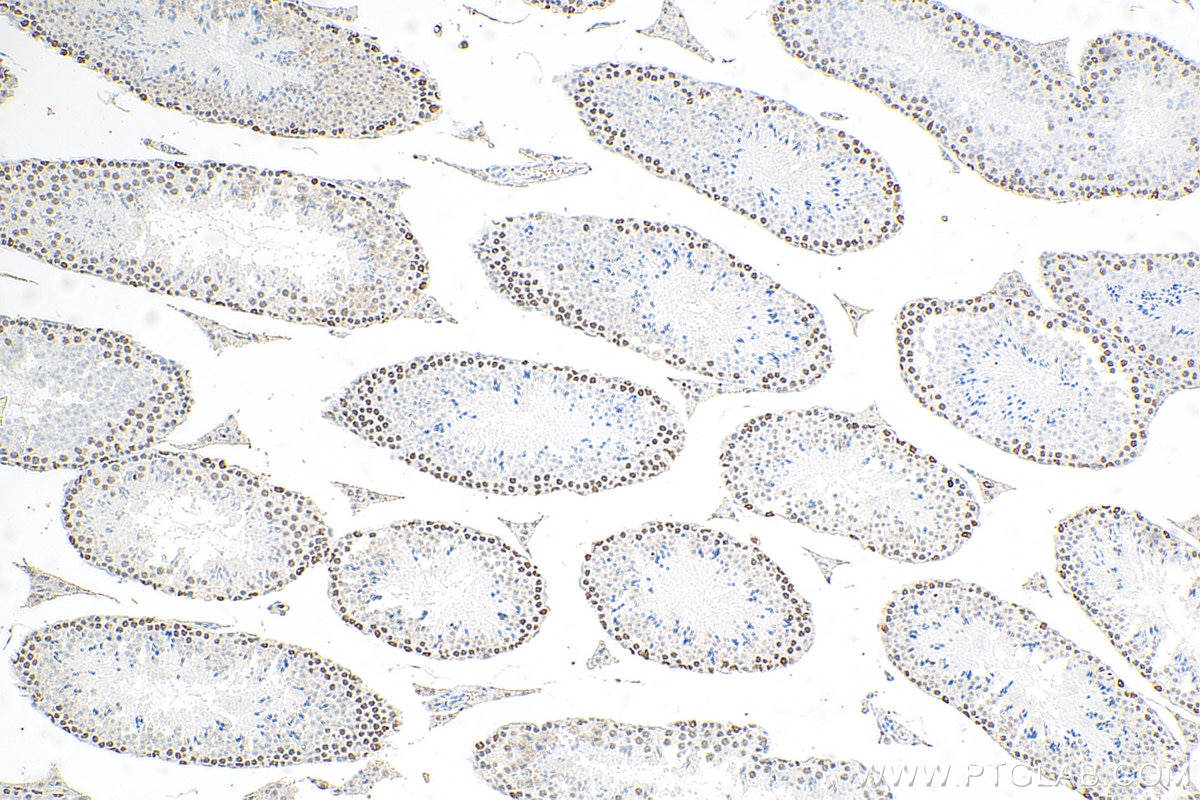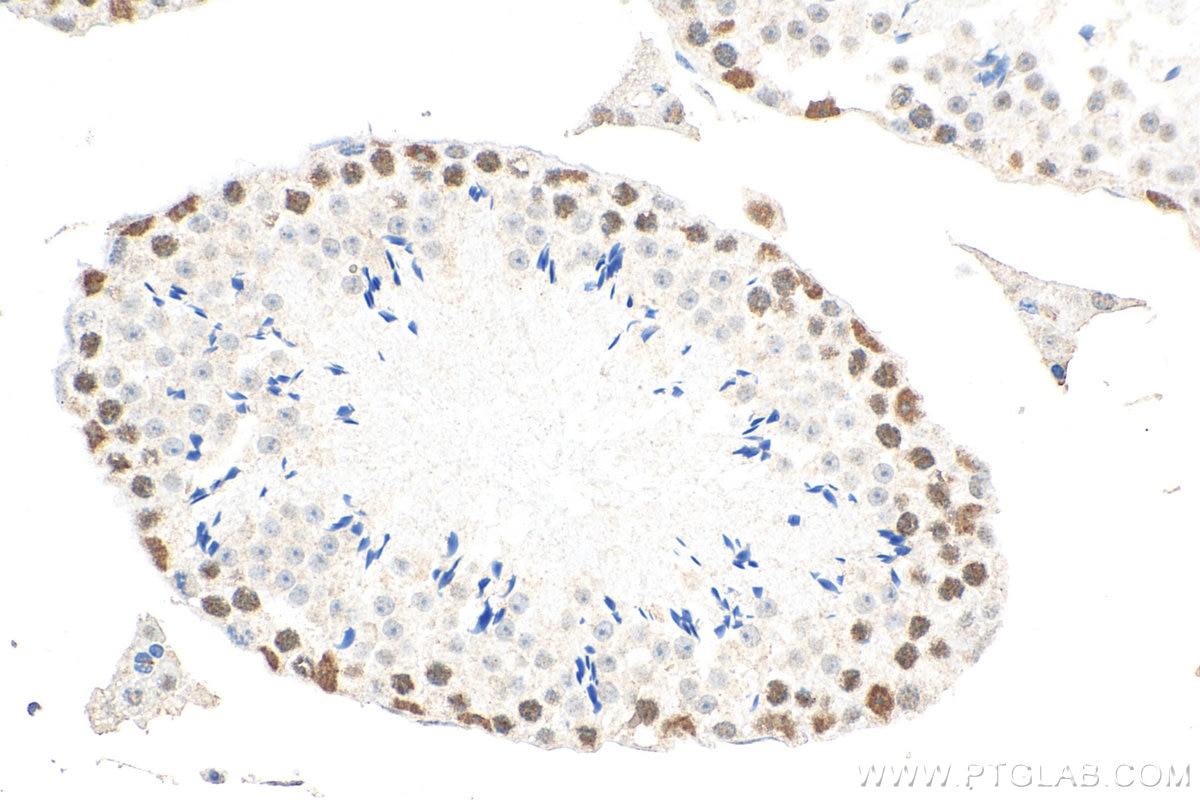- Phare
- Validé par KD/KO
Anticorps Monoclonal anti-KPNA3
KPNA3 Monoclonal Antibody for WB, IHC, ELISA
Hôte / Isotype
Mouse / IgG2a
Réactivité testée
Humain, rat, souris
Applications
WB, IHC, IF, ELISA
Conjugaison
Non conjugué
CloneNo.
1D3D2
N° de cat : 67892-1-Ig
Synonymes
Galerie de données de validation
Applications testées
| Résultats positifs en WB | cellules LNCaP, cellules HeLa, cellules HepG2, cellules HSC-T6, cellules Jurkat, cellules K-562, cellules NIH/3T3, cellules PC-12 |
| Résultats positifs en IHC | tissu testiculaire de souris, il est suggéré de démasquer l'antigène avec un tampon de TE buffer pH 9.0; (*) À défaut, 'le démasquage de l'antigène peut être 'effectué avec un tampon citrate pH 6,0. |
Dilution recommandée
| Application | Dilution |
|---|---|
| Western Blot (WB) | WB : 1:5000-1:50000 |
| Immunohistochimie (IHC) | IHC : 1:1500-1:6000 |
| It is recommended that this reagent should be titrated in each testing system to obtain optimal results. | |
| Sample-dependent, check data in validation data gallery | |
Applications publiées
| WB | See 3 publications below |
| IF | See 2 publications below |
Informations sur le produit
67892-1-Ig cible KPNA3 dans les applications de WB, IHC, IF, ELISA et montre une réactivité avec des échantillons Humain, rat, souris
| Réactivité | Humain, rat, souris |
| Réactivité citée | rat, Humain, souris |
| Hôte / Isotype | Mouse / IgG2a |
| Clonalité | Monoclonal |
| Type | Anticorps |
| Immunogène | KPNA3 Protéine recombinante Ag27767 |
| Nom complet | karyopherin alpha 3 (importin alpha 4) |
| Masse moléculaire calculée | 58 kDa |
| Poids moléculaire observé | 58 kDa |
| Numéro d’acquisition GenBank | BC017355 |
| Symbole du gène | KPNA3 |
| Identification du gène (NCBI) | 3839 |
| Conjugaison | Non conjugué |
| Forme | Liquide |
| Méthode de purification | Purification par protéine A |
| Tampon de stockage | PBS with 0.02% sodium azide and 50% glycerol |
| Conditions de stockage | Stocker à -20°C. Stable pendant un an après l'expédition. L'aliquotage n'est pas nécessaire pour le stockage à -20oC Les 20ul contiennent 0,1% de BSA. |
Informations générales
karyopherin subunit alpha 3 (KPNA3) is a member of the importin alpha family which can transport molecules between the mucleus and cytoplasm. It is ubiquitous expressed in brain,testis and esophagus. KPNA3 is associated with many severe diseases such as hepatocellular Carcinoma (PMID: 31417635) , schizophrenia, major depression and opiate dependence (PMID: 22960338) . The molecular weight of KPNA3 is about 58 kDa.
Protocole
| Product Specific Protocols | |
|---|---|
| WB protocol for KPNA3 antibody 67892-1-Ig | Download protocol |
| IHC protocol for KPNA3 antibody 67892-1-Ig | Download protocol |
| Standard Protocols | |
|---|---|
| Click here to view our Standard Protocols |
Publications
| Species | Application | Title |
|---|---|---|
Cell Mol Life Sci MERS-CoV-nsp5 expression in human epithelial BEAS 2b cells attenuates type I interferon production by inhibiting IRF3 nuclear translocation | ||
Exp Neurol SDF2L1 downregulation mediates high glucose-caused Schwann cell dysfunction by inhibiting nuclear import of TFEB and CREB via KPNA3 | ||
J Biol Chem Direct Observation of Importin α Family Member KPNA1 in Axonal Transport With or Without a Schizophrenia-Related Mutation |
Avis
The reviews below have been submitted by verified Proteintech customers who received an incentive for providing their feedback.
FH Daulet (Verified Customer) (02-09-2022) | It worked on the lysates of SH-SY5Y cells. So, if you are going to use it on this sample, then I can recommend it. However, bear in mind, that whether it will work or not depends on how you treat your samples and other protocol niceties.
|
